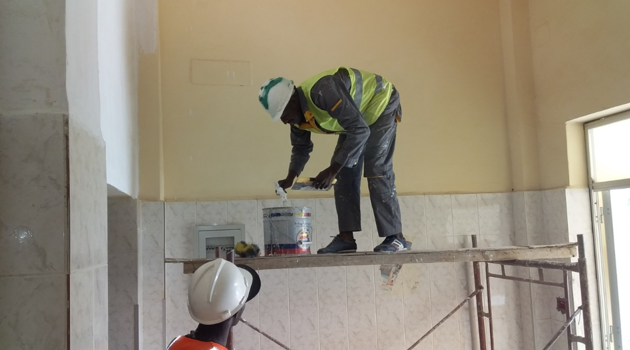The United Nations Development Programme (UNDP) started the rehabilitation of the Albirkht Medical Center in Ghat, as part of the “Strenthening Local Capacities for Recovery and Resilience” project funded by the European Union (EU).
With the US$1.2 million allocated to Ghat, the EU-UNDP Resilience initiative has already started the process to provide the city with two sewage trucks that will be delivered in the coming weeks, and will rehabilitate Othman Bin Affan and 17th February Schools.
Out of $2.9 million committed, the Stabilization Facility for Libya implemented by UNDP in coordination with the Ministry of Planning with the support of 13 donors and the Government of Libya, already ordered equipment valued at more than $1.9 million.
It includes four pesticide sprayer vehicles, four sewage suction trucks, eight submersible sewage pumps, 21 generators, four potable water tankers, 17 submersible water pumps, four welding machines with welding generators, and four surface wanter pumps. The $1 million remaining will be processed to provide more equipment for the water and sanitation sector.
UNDP Resident Representative, Mr. Gerardo Noto, said:
“After floods affected Ghat last June, UNDP joined the Special Representative of the Secretary-General in Libya, Mr. Ghassan Salamé, and all the United Nations agencies to quickly respond to the short and longer term development needs in Ghat. Our support in health, education, energy, water and sanitation has been prioritized by the community and will contribute to stabilization, recovery and resilience in Ghat as part of our strategy in the South.”
Currently, UNDP is supporting local authorities in 46 municipalities, eight in the South, with critical equipment and rehabilitating public infrastructures to response to the immediate needs of the people, providing at the same time a long-term sustainable solution.
The equipment and rehabilitation works destinated to Ghat will help people, especially those affected by the floods that the city experienced in June this year, to have access to basic services as education, health, electricity and clean water.
(Source: UNDP)





